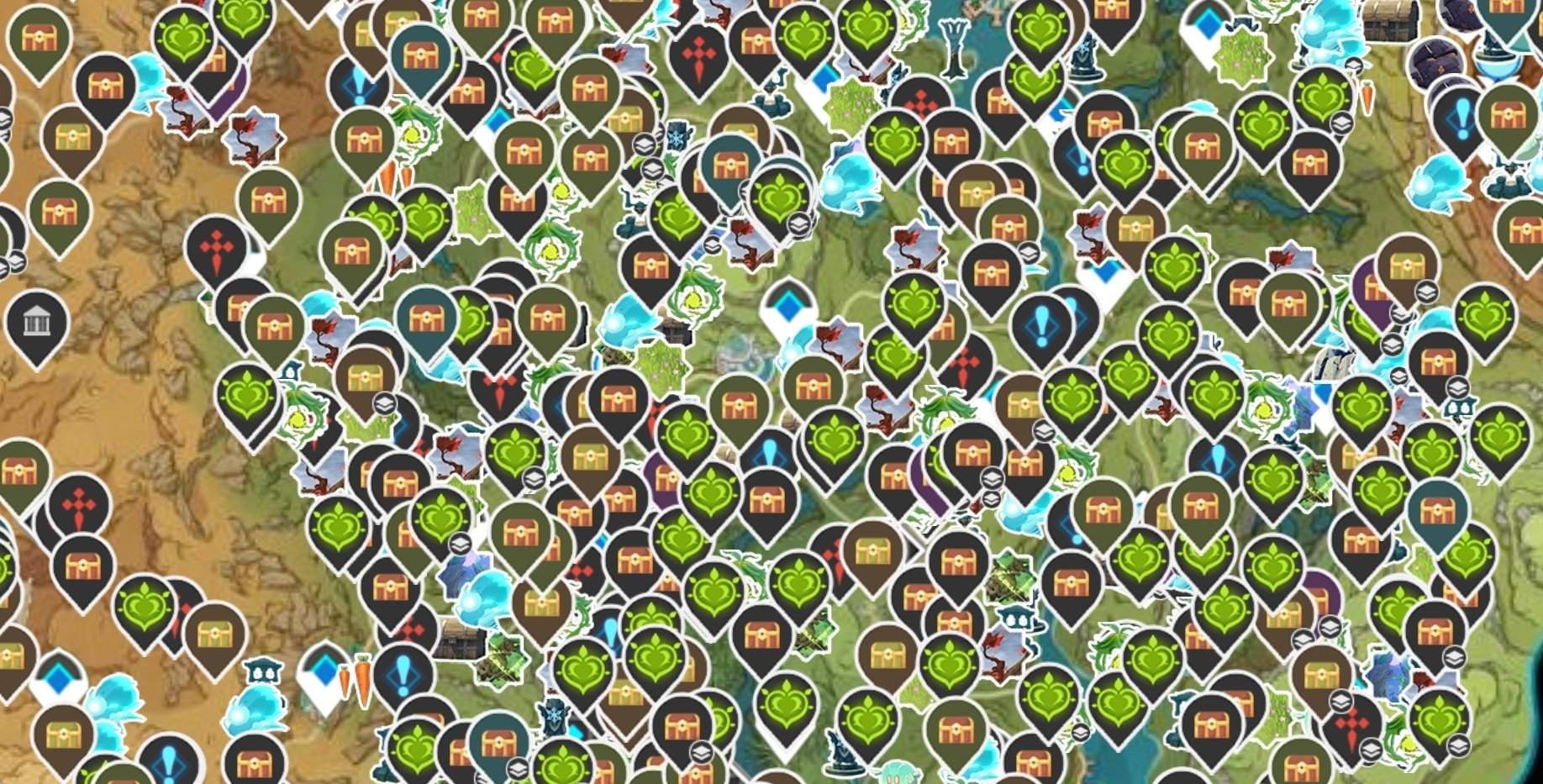(By game size he means scope of the game and huge open world maps, not game install size)
Here’s hoping! Not only has it ruined a lot of once-smaller games, but it’s also largely responsible for ballooning development budgets, so let’s get that down to something sustainable.
One of the most egregious cases for me was Assassin’s Creed Odyssey. There was stuff for 40 hours aplenty, yet I spent most of those 40 hours killing the same goons over and over but with a different number over their heads, which meant I needed to spent more time in doing so.
If they had just aimed at making a memorable 30 or so hours, it would have been way better. This experience made me stop playing any Assassin’s whatever games.
Opposite to this, there was “Still Wakes the Deep”, which is a rather short but plentiful game.
I haven’t played Still Wakes the Deep, but Indika was that smaller game for me this year, and I’d highly recommend it.
“Indika, a nun looking to adjust to a monastic life. The twist in the tale comes in the form of her companion: she has a connection with the Devil himself”
Oh wow, with that summary count me in!
You have no idea. The opening moments of that game are surprising, even with that blurb and my recommendation, lol.
deleted by creator
I meant it that I really enjoyed the setting, the characters and some game mechanisms. I just hated this need of making the game seemingly endless by repetition, and I wished I didn’t have to be level X to be able to do Y, because the only way to level up was churning (for me that’s a no bueno).
That game was soooo good!
God of war and Jedi have done great jobs of finally showing AAA they can make a smaller game and still have a great following. I’m so sick of giant Ubisoft worlds that have nothing to do in them. They’re boring.
I haven’t played the Jedi games, but it’s crazy that the new God of War games are somehow a demonstration of restraint, as that one from 2018 is probably twice as long as I would have liked, and Ragnarok is longer still, according to How Long to Beat.
Compare it to a game like AC Valhalla and you’ll think it’s smaller
Ha, you think this is to lower the budget or the price? Come on!
I know this is a cynical critique of capitalism, but even so, capitalists love lowering budgets and charging the same amount. Quite frankly, I’d happily pay the same or more to get a game with less bloat in a lot of cases.
deleted by creator
What we’ll probably get (from Bethesda) is a combination of both. Smaller, barren, and procedurally generated
I don’t get why open worlds have to be so big. 95% of the time, they have next to nothing in them.
To be able to say “our map is 100x100km!” The only games where it is worth it to have a huge map like that, is army simulators and RTS. Anything else could probably be better off with polish in some other place, rather than a huge map.
One of the notorious examples in PS3 gen era that’s now can’t be purchased at all. It’s a derpy offroad racing game in what looks like a procedurally generated world emptier than ash deserts in Morrowind.
Maybe you can explain this to me… I’ve heard this countless times over the years, but I can’t figure out how it’s measured?
Is it based on if MC is taking average human strides? It seems like a ridiculous metric.
Games / game engines use units which correspond to size IRL. It’s needed to keep scale consistent. The characters are usually around 1.8m tall for instance
Well they gotta have the right balance, otherwise they’d end up be “open small town” instead of “open world”
I’m burnt out on open world games. Some are good with dense rich areas that are interesting and make you want to explore but most these days are just bland, overly large and filled with generic quests.
Games need to stop being open world for the stake of being open world. I think for a lot of games, having multiple open-ended areas can work much better.
Definitely one of the reasons I absolutely love the original Borderlands. Large world, but broken into a lot smaller chunks/maps. More games doing stuff like that would be absolutely perfect.
I’ve been mulling over this the past few years, having finally kicked the WoW habit in the second year of Shadowlands (approaching ~3 years now)…
…but how often are quests/missions/objectives etc. just a combination of go to x, collect x of y, kill x of y? At a certain point, all of these become generic - right?
Yep pretty much. All games boil down to what you mentioned above but the execution can vastly differ. I guess the low end is the Ubisoft approach where everything is just a generic world and its go climb this tower/ capture this outpost etc and the high end is the Rockstar approach where it might be drive there, do this but things could be different in between that keeps it engaging. I guess it feels more like a living world.
A building out rather than filling in approach?
Yeah I guess so. Less like a look here’s a world that I designed, how do we fill it approach and more like a what story do we want to tell and what does the world look like kind of approach if that makes sense.
There’s a whole different angle to game fun which is exploring game mechanics and the complexity that emerges from their combinations and interaction with the game space and the behaviour of independent game entities.
For example (and highly simplified), in Terraria the player has to balance the location of resources, their search and extraction of them, the actual movement, location and needs of the game monsters and NPCs, and their own progression up the “research ladder” (only in Terraria the “research ladder” is implicit and based on which resources have you managed to get your hands on and what have you built with them).
Whilst some of the fun in that game is in exploring a procedurally generated world, the drive to do so and the main fun in the game is to solve the complex problems that emerge from the interaction of those things: you explore to find resources that let you make equipment that allows you to explore more dangerous or harder to reach places to find more complex resources to make more complex equipment and so on and meanwhile the more advanced equipment also lets you do no stuff (IMHO, just merelly “shovel +1 level” equipment improvements are nowhere as satisfying as getting access to new kinds of stuff that let you do new stuff).
Examine games like for example Factorio, Minecraft or Rimworld and you find the same kind of global game loop: do stuff to get stuff to be able do more difficult stuff to get more advanced stuff and so on and all the while the complexity of your choices increases because the combination of options you have goes up as, often, also does the complexity of the World you now have de facto access to.
The AAA world however went down the path of story-like games which have one core linear story (the main quest) and then a bunch of mini-stories (side quests) and were game progression comes from advancing the core story and gaining levels (which themselves are generally just the mathematical result of doing stuff and advancing the core store and doing side stories) that let you do the same things only better and maybe a few news things, ultimatelly to help story progression. Stories “officially” drive the player’s exploration (though some players also self driven to just explore just because of liking to explore) and it seems to be impossible to get good stories working well in procedurally generated worlds (as No Man’s Sky has proven, IMHO). There is often some amount of the same mechanics as I describe above for open world indie games, but they’re not the core of the game and what drives the player.
And yeah, if your game is story driven and you can’t procedurally generate the game space with good stories, you’re going to hit limits in the size of the thing, either on the size of the game space that has to be handcrafted to work well with the stories or in the amount of stories being insufficient for the game space leading to lots of boring game space that feels empty like it’s just filler.
I would say that map size never was “most important”, at least not to the players, they’ve been complaining about huge but empty maps for years (the poster child of this, AC Odyssey was released in 2018, six years ago). It was just something devs and publishers pushed to one up each other in some kind of “bigger = better” way.
One another wound Minecraft opened in CEOs vision of gaming. Another one is everything should have some crafting.
I’m so sick of action rpgs including crafting or an endless list of slightly different weapons. Give me a small mix of situational weapons at most and let the gameplay be how difficulty works.
They don’t need to work on difficulties that long if you can just craft over it lol.
I feel like Fantasy Life did this the best though. I absolutely loved this game and wish it would get a port to PC.
I hope so. I want an era of gameplay first again…
I realized this idea long, long ago, when Rare made Banjo-Tooie.
Banjo-Kazooie was a fun game. You unlock worlds, go to the world, collect 100% of all there is to collect, then continue.
Banjo-Tooie, its sequel, wanted to be bigger and better in every way. Sprawling open world hub, much larger worlds with more sub-zones, interconnectivity between worlds, more things to unlock, more things to do, etc. etc.
And I think, despite having so much more, it was a worse game for it. You go to a new world but find there’s a lot you can’t do yet because you didn’t unlock an ability that comes later on. You push a button in one world and then something happens in another, but now you have to backtrack through the sprawling overworld and large world maps to get there.
And this was just a pair of games made for the Nintendo 64, before the concept of “open world” had really even taken off.
But it demonstrated to me that bigger was not always better, and having more to do did not make it a better game if it wasn’t as enjoyable.
Early open world games were fairly small, and the natural desire for people who have seen everything becomes “I wish there was more,” but in practice it ends up typically being that they take the same amount of stuff and divide it up over a larger area, or they fill the world with tedium just for the sake of having something to do.
When looking at the collectibles and activities on a world map like Genshin Impact, it’s basically sensory overload with how much there is to do.

But almost all of that is garbage. And this is just a fraction of one region among several. Go here, do this time trial, shoot these balloons, follow this spirit, solve this logic puzzle, and then loot your pittance of gatcha currency so you can try to win your next waifu or husbando before time runs out.
And don’t forget to do your dailies!
If a game has a large world, it needs to act in service to its design. It needs to be fun to exist in and travel through, not tedious. It needs to have enough stuff to do that keep it from feeling empty, but not so much stuff that it makes it hard to find anything worthwhile. And it needs to give enough ability for the player to make their own fun, to act as the balance on that tightrope walk between not-enough and too-much.
Breath of the Wild/Tears of the Kingdom are the most recent games that seemed to properly scratch an open world itch for me. While they weren’t perfect, the way they managed to really incorporate the open world as its own sort of puzzle to solve, in ways that Genshin Impact failed to properly emulate, made them more enjoyable as an open world than most other games in that genre I’ve played in recent memory.
I mean I love open worlds with day/night cycles and other sorta living breathing feels. background views you can’t interact with though. meh.
I would absolutely love it if games started going back to the original Borderlands 1 style maps/areas. The type of maps that were more small-medium sized area that were completely self-contained sections of a larger world.
Weird. In the West, we’ve been welcoming small(er) but interesting, unique or otherwise impactful games regardless of its size. Complaining about Warzone taking up 250GB on your hard drive and stuff. And that was 2020.

Not so much the size it takes up on your drive, he’s referring to the breadth and scope of the game itself.
You right, my thoughts trailed and I added that last bit even though it didn’t have to do with it, idk why.
I’m struggling to find space on my 500gb Deck and can relate to that
no fun in empty open world
They say people had fun in Daggerfall.
I was excited by Tears of the Kingdom but when I opened up the underground area I passed. That game is the biggest open world I have not experienced.
The Depths are really boring anyways, and felt like an afterthought
Yakuza maps have never been particularly huge. Even in the most recent game, the new map is maybe on the scale of GTA III or Vice City. Still, they manage to pack 15-20 minigames into each game’s word map, some of which involve driving or riding around the map, plus the inevitable scavenger hunts and hidden collectibles.
The key is the “density”, activities and (player) engagements. I find it funny RGG is probably one of developers that can get away reusing assets so much that even can be traced back to ps2 assets on their newer games.
What’s the appeal of Yakuza? Is it a modern day Shenmue?
It’s bizarre, there are a ton of mini-games, combat is sometimes fun, storyline is yakuza melo-drama, dripping in themes around loyalty, honor and sacrifice.
It has a little bit of something for everyone.
9/10
Idk i think its random bullshittery if my memory serves me right
I wish
It’d be nice if JRPGs would go back to the old school overworld design like in Star Ocean 2. It’s a good compromise between sense of scale and interactivity with the world.


















